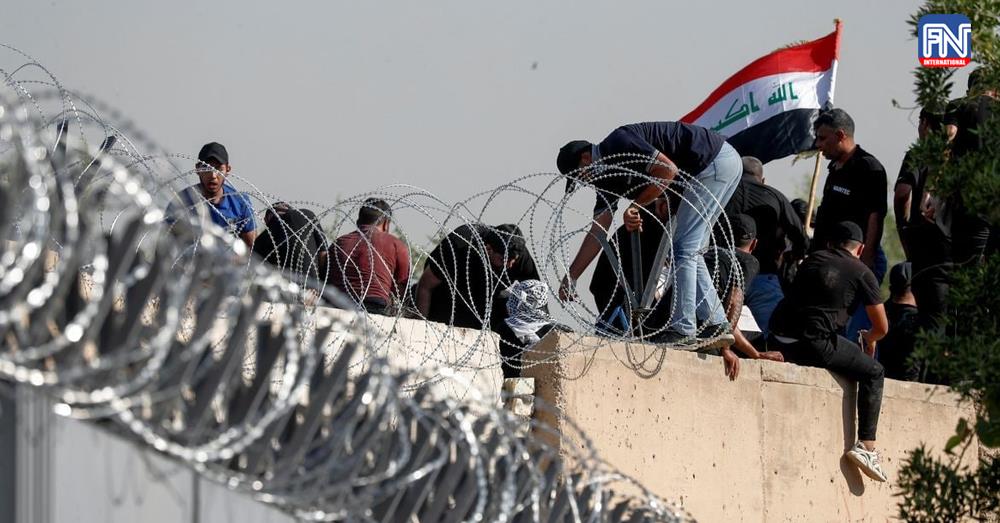BAGHDAD, Aug 29 (CGTN) - Thousands of supporters of powerful Shiite cleric Moqtada al-Sadr stormed major government buildings in Iraqi capital Baghdad and sparked deadly clashes late Monday shortly after al-Sadr said he would quit politics.
According to local media, almost 20 people were killed and dozens wounded.
Iraqi security forces fired warning shots along with tear gas canisters to disperse the protesters who stormed the compounds, while sporadic shootouts from unknown gunmen occurred inside the heavily fortified Green Zone, which houses government buildings and diplomatic missions.
According to AFP, at least seven shells fell in the Green Zone on Monday, but it was not immediately clear who was behind the shelling.
Iraqi Prime Minister Mustafa al-Kadhimi, also commander-in-chief of Iraqi forces, ordered the security forces to refrain from using live bullets at demonstrators and launched an investigation into the casualties in the clashes.
Amid the heightened tension, a full curfew has been announced in all provinces starting from 7 p.m. local time (1600 GMT).
UN chief Antonio Guterres has appealed for calm and restraint, urging all actors involved to take immediate steps to deescalate the situation while avoiding violence.
"The secretary-general strongly urges all parties and actors to rise above their differences and to engage, without further delay, in a peaceful and inclusive dialogue on a constructive way forward," according to a statement from Guterres's spokesperson.
Political disputes have escalated in the past weeks between al-Sadr and his rivals in the Coordination Framework (CF), an umbrella group of Shiite parliamentary parties.
On July 30, al-Sadr's followers broke into Green Zone in central Baghdad and held a sit-in protest in and outside the parliament building, demanding the dissolution of the parliament and early elections, all rejected by CF parties.
The bloc became the largest alliance in the Iraqi parliament after al-Sadr ordered his followers in the Sadrist Movement, the biggest winner of the October 2021 elections with 73 seats, to withdraw from the parliament.
During the past months, the continued disputes among the Shiite parties have hampered the formation of a new Iraqi government, making it unable to elect a new president by a two-thirds majority of the 329-seat parliament under the constitution.
If elected, the president will appoint the prime minister nominated by the largest alliance in the parliament, now the CF, to form a new government that would govern the country for the next four years.
